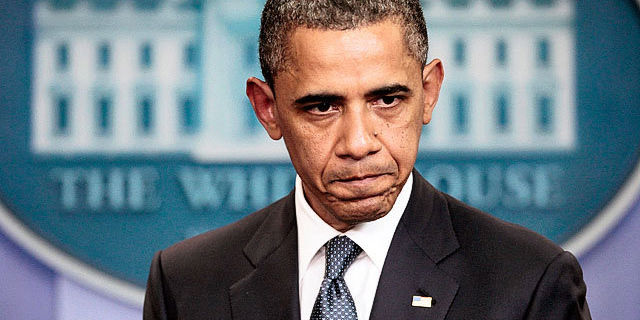There are similarities in the way the Obama administration assured the American people that it was up to handling both the Ebola problem and the Obamacare rollout. And for that matter, the scandals plaguing the Veterans Administration.
Videos by Rare
Three strikes and you’re out!
When the first Ebola case was identified in the U.S., Dr. Thomas Frieden, Director of the U.S. Centers for Disease Control and Prevention (CDC) and Obama appointee, held a press conference to explain that the government had the situation well under control:
The bottom line here is that I have no doubt that we will control this importation or case of Ebola so it does not spread widely in this the country. … But there is no doubt in my mind that we will stop it here.
The CDC has been scrambling ever since to contain not just the disease, but the widespread public feeling that the agency was caught off guard.
On October 1, 2013, then U.S. Department of Health and Human Services (HHS) Secretary Kathleen Sebelius released a statement on the day the healthcare.gov website went live so that people could start enrolling in Obamacare:
For years, the financial, physical or mental health of millions of Americans suffered because they couldn’t afford the care they or their family needed. But thanks to the health care law all that is changing. Today’s launch begins a new day when health care coverage will be more accessible and affordable than ever before.
HHS and the Obama administration have been scrambling for more than a year to try to: (1) get the website to work the way it was supposed to; (2) tap dance around millions of health insurance policy cancellations; (3) explain the higher health insurance premiums; and (4) dismiss concerns about cyber-attacks exposing millions of Americans’ personal information.
Dr. Frieden came out Tuesday to concede that mistakes were made, but you can trust that the agency NOW has a handle on the problem—then a second health care worker tested positive. Similarly, President Obama came out a few weeks after the disastrous Obamacare rollout to say mistakes were made, but Obamacare was still great coverage and his team was hard at work to ensure all the problems were fixed.
Does anyone now think the guy who wanted to be the “health care president” and his administration are competent to handle health care issues? Let’s see:
The Washington Post reports, “Nearly two-thirds [66%] of Americans are concerned about a widespread Ebola epidemic in the United States, despite repeated assurances from public officials that the country’s modern health-care and disease-surveillance systems will prevent the type of outbreak ravaging West Africa.”
With respect—or “disrespect”—to Obamacare, The Weekly Standard reported on Oct. 1, “A new poll finds that three-fifths [60%] of likely voters support the repeal of Obamacare.”
Both Obamacare and Ebola-care have become public relations disasters; the people in charge have had to apologize for the missteps; one has had to step down (Sebelius), and there are calls for the other (Frieden) to do so; and the public distrusts the efforts by wide, almost identical, majorities.
The real tragedy of the Ebola virus and what the Obama administration tried to portray as the “tragedy” of being uninsured are two very different challenges. Though, while the former is certainly a threat to people’s lives the latter could be.
But Obama’s confidence in big government’s ability to handle all health care issues looks, in hindsight, not only arrogant but foolish—and a threat to the public health. Obama came to Washington to prove to the country that big government could be efficient, competent and cost effective. He’ll leave office with a public more skeptical of big government than ever.



